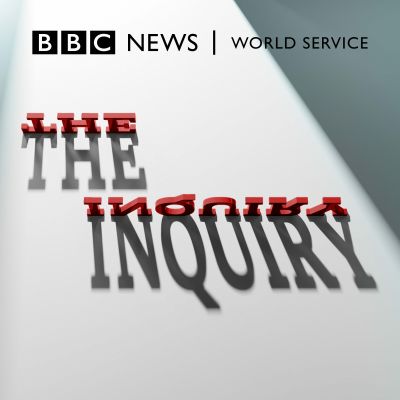The Inquiry gets beyond the headlines to explore the trends, forces and ideas shaping the world.
http://www.bbc.co.uk/programmes/p029399x
Is the war in Ukraine at a stalemate?
The head of Ukraine’s armed forces General Zaluzhny has a this frank take on his country’s conflict with Russia "Just like in the First World War, we have reached the level of technology that puts us into a stalemate." He explains that using drones and remote surveillance equipment in battlezones means each side knows what the other is doing. That slows down troops advancing ….and creates a standoff. In a separate essay offering solutions the general states that fresh tech innovation is the key to cracking it. President Zelensky disagreed, his office accuses the general of making “the aggressor’s job easier.” The Kremlin also denies there’s a deadlock. But with the world’s attention also focussed on the Middle East, has attention drifted away from the Ukraine conflict – and if it has what does that mean for Ukraine’s campaign? Charmaine Cozier asks if the war in Ukraine has reached a stalemate. She explores the current state of fighting which continues on the eastern frontline, and whether Ukraine’s recent attacks on Crimea demonstrate that country’s capacity to fight back against Russia’s forces. Meanwhile Moscow has been building up an ‘axis of the sanctioned’ – countries including Iran and North Korea, which are providing armaments and sharing technology to support Russia’s military in Ukraine in a war of attrition. As the war heads towards its second year, is international support for Ukraine holding up? In the United States, some Republican law-makers have delayed the latest package of military aid to Ukraine as they raise questions about the cost of the war for Americans. One year out from the next Presidential election, support for Ukraine is may become an election issue. In Europe support for Ukraine has been signalled by the European Union as it recommends formal talks should begin. Contributors: Tymofiy Mylovanov is President of Kyiv School of Economics. He’s also a former member of the Ukrainian government. Before leaving it in 2020 his roles included Minister of Economy, International Trade and agriculture. Dr. Hanna Notte is director of the Eurasian Program at the James Martin Center for Nonproliferation Studies. It focuses on research and training around preventing the spread of nuclear weapons and technologies. She’s also Senior Associate with the Europe, Russia and Eurasia Program at the Center for Strategic and International Studies in Washington. Natasha Lindstaedt, is a professor of government at the University of Essex in England Mark Katz is a professor of government and politics at the George Mason University Schar School of Policy and Government in Virginia in the US. CREDITS Presenter Charmaine Cozier Producer Philip Reevell. Researcher Matt Toulson Editor Tara McDermott Technical Producer: Richard Hannaford. Image credit Getty Images
